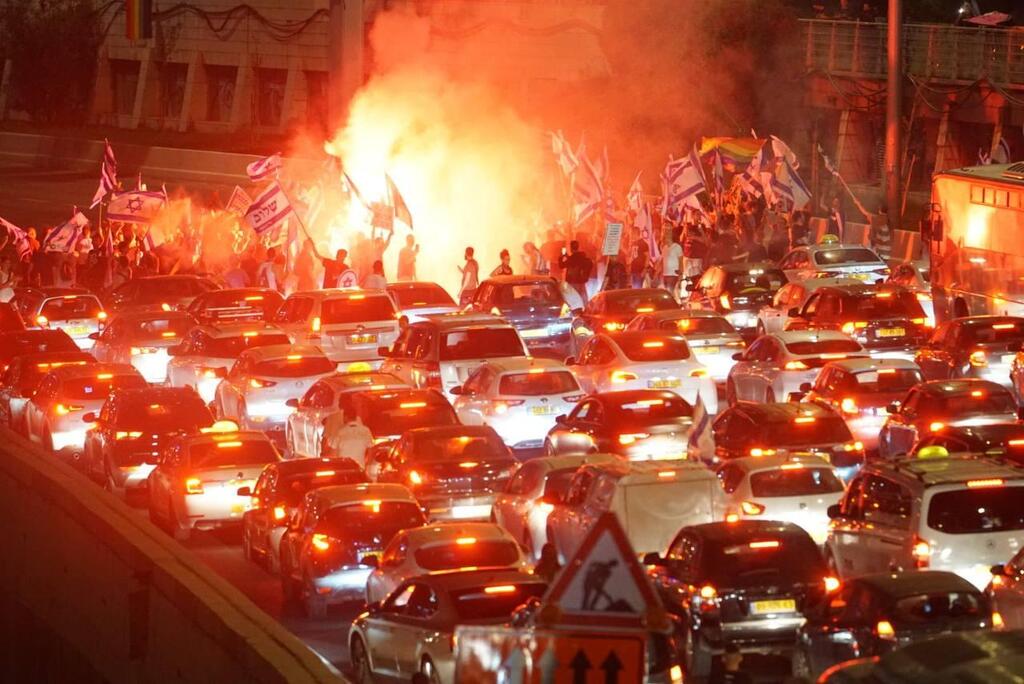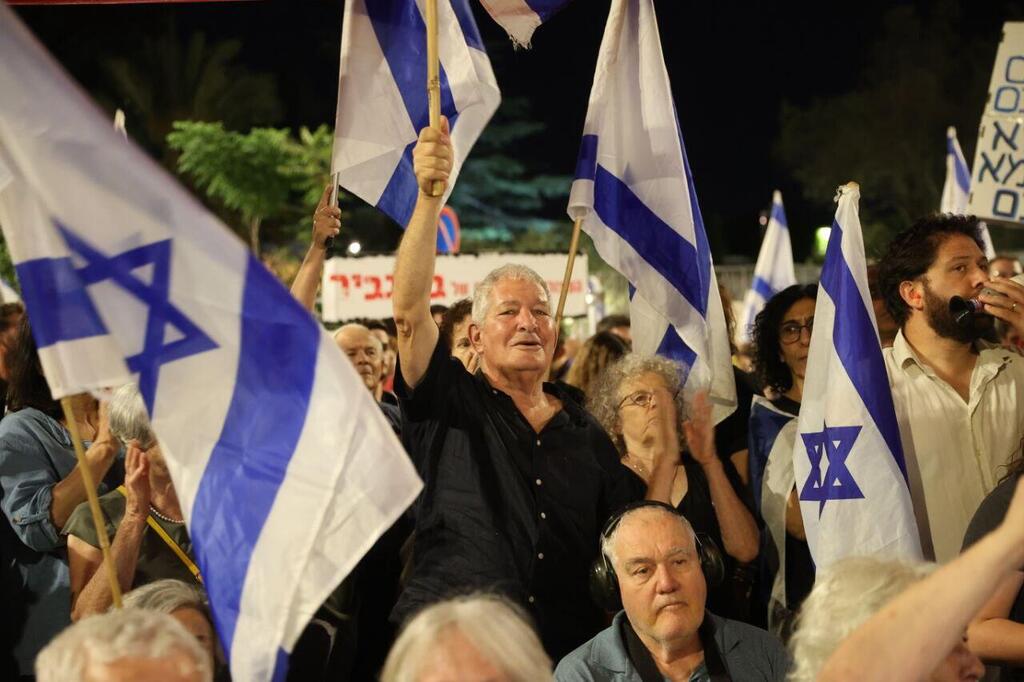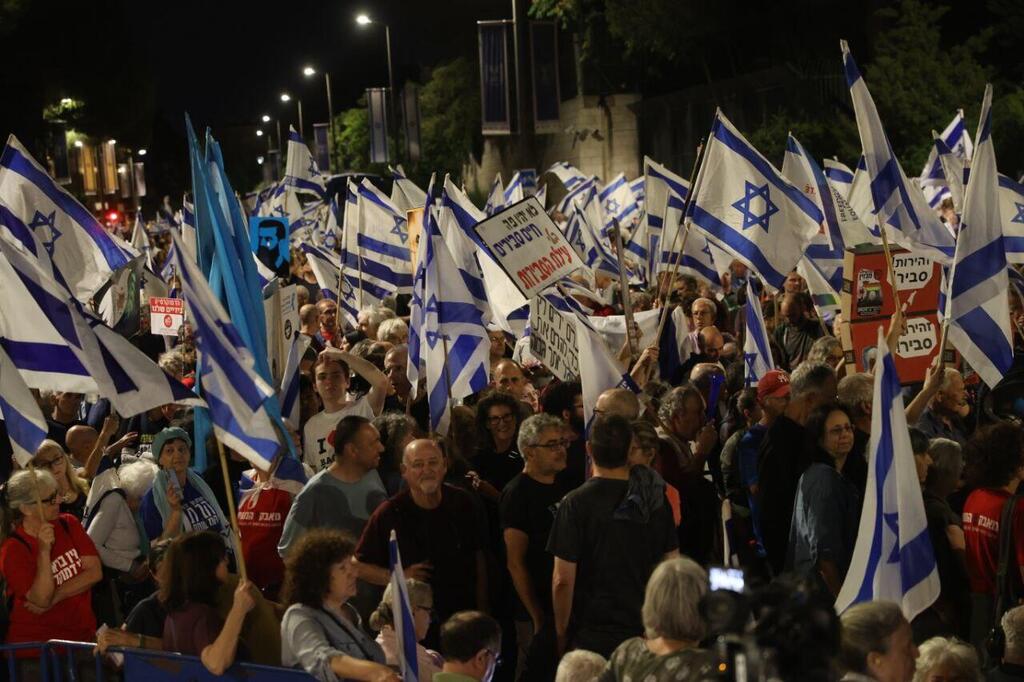“Demokratia!” is the chant, the theme song, and the slogan of the hundreds of thousands of patriotic Israelis who have been gathering for 25 weeks (so far) to express their love for the Jewish state and the essentiality of its democracy.
Read more:
Demonstrators come from every part of society. About a third of them or more here in Jerusalem appear to be religiously observant, as indicated by the number of kippot and other external signs, (simplistic measures that likely result in an underestimation). The crowd outside the President’s Residence is often loud and always peaceful. Every evening ends with hope, as the demonstrators sing Hatikva.
Most Israeli citizens oppose the radical overhaul of the judiciary – a plan that would leave the institution greatly weakened, at best, and effectively disabled, at worst, unable to serve as the single check against runaway executive power. Other serious adverse consequences to the country have been well-described elsewhere. We know we don’t want that.
But what, exactly, do we want? Beyond our objection to the disabling of the structure of checks and balances, when we call for “Demokratia!”, what kind of Jewish and democratic state do we envision? Are there models of democracy that suit our circumstances?
There are almost as many kinds of democracy as there are states that define themselves with the word. There are liberal democracies, such as the United States, and ethnic democracies, in Europe and elsewhere.
In a non-ethnic liberal democracy, theoretically, the rules and principles of democracy alone determine the national culture. Thus, if the demographics and voter preference patterns change sufficiently over time, the U.S. could, for example, no longer celebrate Christmas as a national holiday, and replace it with a non-Christian holiday.
3 View gallery


Anti-judicial reform protesters set fire to major Tel Aviv highway
(Photo: Aviv Atlas)
In contrast, ethnic democracies have a culture, religion, language and people who are historically connected to the land. This culture and its values are protected within a democratic structure that maximizes individual freedoms while conserving the country’s heritage. Each ethnic democracy accomplishes this balancing act in its own way.
Israel is an ethnic democracy. But it is not the only one by far. Ethnic democracies exist in Europe, Asia and Africa. India and Belgium, Northern Ireland, Slovakia, and Nigeria, to name just a few, are also ethnic democracies. All are states that have a core majority whose culture and language dominate, and which also have a commitment to democracy.
Ethnic democracies have challenging tensions with their country’s minorities - tensions that sometimes even devolve into violence - and each country balances those tensions with more or less success.
Let us remember that liberal democracies have similar tensions between their ethnic, racial, religious and other majorities and minorities.
Take Denmark as a case in point. Long considered to be an ideal of maximizing freedom within a social democratic state, in recent years Denmark has been challenged by an influx of religious Muslim immigrants whose beliefs and lifestyles conflicted with the majority culture. Denmark responded by restricting the flow of immigration, and by requiring conformity to the norms of the majority.
To cite just one example, some of the immigrant women wore burkas, considering it to be a form of modesty and protection. Women and men also avoided shaking hands with the opposite sex, for religious reasons. Nevertheless, in 2018 the Danish Parliament passed a “Burka Ban”, and a law making a handshake a precondition for citizenship. The law stated that "a handshake is an expression of respect," and respect is a "fundamental societal value" in Denmark.
Even in Denmark, that model of liberal values, the norms, values and culture of the dominant majority are upheld, alongside the values of freedom and equality.
Opposition leadership would be well-advised to clarify its vision of Israeli democracy in order to strengthen its position and inspire its followers. Democracy is a balancing act, and all societies are works in progress.
- Renee Garfinkel, Ph.D. is a psychologist, writer, Middle East commentator for radio and television. Her work has appeared in the Jerusalem Post, Psychology Today and the Washington Times. Renee hosts a podcast, The Van Leer Institute Series on Ideas



